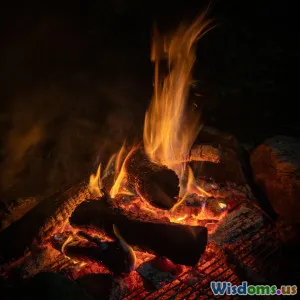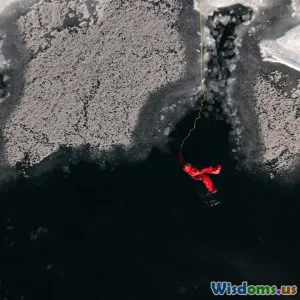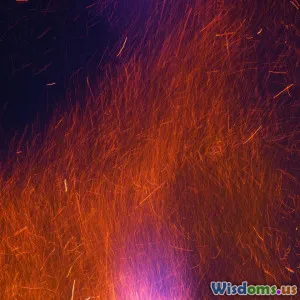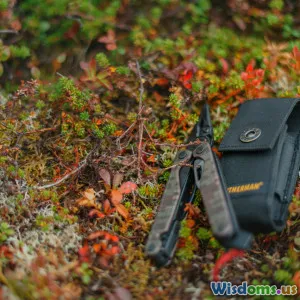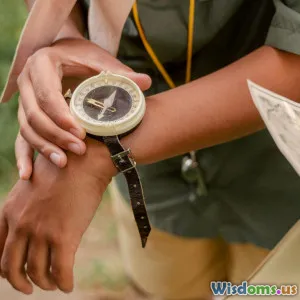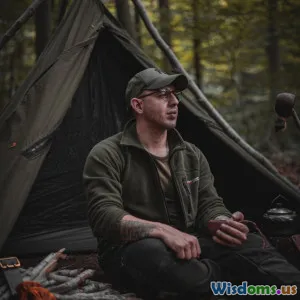
How I Survived Lost in the Woods Lessons Real Experience Taught Me
7 min read A firsthand account of surviving lost in the woods, revealing essential lessons for preparedness and resilience. (0 Reviews)
How I Survived Lost in the Woods: Lessons Real Experience Taught Me
Finding myself lost in the woods was an unexpected and intense experience—a stark reminder of how quickly comfort can turn to uncertainty. What began as a peaceful hike into nature unexpectedly morphed into a survival challenge that tested my instincts, resilience, and ability to adapt. Today, I want to share my story: not just the frightening moments but the invaluable lessons the wilderness taught me—lessons that anyone venturing outdoors should know.
The Beginning of the Ordeal: Where Things Went Wrong
I had planned a solo day hike deep in a popular national forest. Armed with a map and a sense of adventure, I felt prepared and confident. However, when thick fog rolled in, visibility dropped drastically. I accidentally strayed off the main trail and lost landmarks that guided me.
As twilight approached, panic set in, realizing I’d underestimated how quickly the environment could change. I was alone, my phone's signal was gone, and there was no clear direction back.
Lesson 1: Stay Calm and Assess Your Situation
The first lesson I learned is the crucial importance of managing fear. Panic clouds judgment and wastes valuable energy. Instead, taking a deep breath, sitting down, and making a rational assessment of my surroundings helped me regain control.
Experts in survival psychology emphasize controlled breathing to maintain mental clarity under stress. The U.S. Forest Service advises, "Stop. Think. Observe. Plan." It was exactly what I did.
Lesson 2: Use Nature and Your Senses to Orient Yourself
With no GPS, I relied on natural clues:
- Sun’s Position: Even though fog limited visibility, occasional sunlight breaks helped me identify cardinal directions.
- Land Features: Streams often lead to civilization or trails. I heard flowing water and decided to follow it downstream.
- Vegetation: Moss often grows on the north side of trees, a useful general guide.
This reminded me of lessons from scouts and survival courses about using nature as a compass.
Lesson 3: Prioritize Safety Over Speed
Instead of rushing blindly, I chose to move deliberately. I stayed near the creek, keeping noise levels low to preserve energy and avoid attracting wildlife unnecessarily. I avoided risky climbs or heavily overgrown paths that could cause injury.
Studies demonstrate that many lost-hiker injuries happen when people speed up their movement through rough terrain instead of moving cautiously.
Lesson 4: Signal for Help Wisely
Night forced me to find a safe spot to rest. To maximize rescue chances, I used three loud whistles intermittently—the international distress signal pattern—as well as made a large SOS sign with sticks and stones in a clearing. These strategies increase visibility and detection by potential search parties overhead.
The importance of a signaling plan is underscored by many search and rescue recommendations globally.
Lesson 5: Improvised Shelter and Water Are Essential
Before dawn, temperatures dropped significantly. Without shelter, hypothermia risk rises even in mild climates. Using fallen branches and my jacket, I created a simple lean-to. From my research, shelter reduces heat loss dramatically.
Water necessity is critical: dehydration aggravates exhaustion and cognitive decline. I collected water from the creek, filtered by a clean cloth, and boiled it using sticks and some dry bark as tinder I had collected earlier, underlining the value of always gathering natural resources early.
Lesson 6: Mental Fortitude Is as Important as Physical Endurance
Several moments tested my determination: loneliness, cold, hunger, and doubt. To combat despair, I practiced positive self-talk, reminding myself that attention to small goals (like staying warm or signaling) would cumulatively lead me to rescue.
Survivor testimonies often highlight the critical role of psychological resilience. Studies in wilderness psychology also verify that optimism increases chances of survival.
Lesson 7: Preparation Before the Trip Makes All the Difference
Reflecting on what could have prevented my ordeal:
- Personal locator beacon (PLB) or satellite messenger could have summoned help immediately.
- A better understanding of emergency signaling or primitive shelter techniques would have eased the night.
- Informing someone about my precise route and expected return time.
Statistics indicate that most wilderness rescues involve people who underestimated risks or lacked communication tools. Packing essentials like a whistle, firestarter, map, compass, and basic first aid also helps mitigate dangers.
Conclusion: Transforming Fear Into Empowerment
Being lost in the woods was among the most challenging experiences I’ve faced. But navigating through that primal fear and uncertainty reinforced invaluable life lessons: the primal necessity of self-control, the empowering knowledge of reading nature, and the irreplaceable benefit of preparation.
If my story sparks a thought to respect nature’s unpredictability and encourages you to build survival skills, then sharing it is worthwhile. The woods might be wild, but with respect, knowledge, and resilience, you can turn fear into confident survival.
Remember: Wilderness survival isn’t just about tools and skills; it’s as much a test of your mindset and your preparedness.
Further Resources
- U.S. Forest Service Survival Tips: https://www.fs.usda.gov/learn/safety
- National Outdoor Leadership School (NOLS) Wilderness Medicine Course
- "Deep Survival" by Laurence Gonzales – a study of survival stories and psychology
Stay safe, stay curious, and respect the wild.
Rate the Post
User Reviews
Popular Posts










